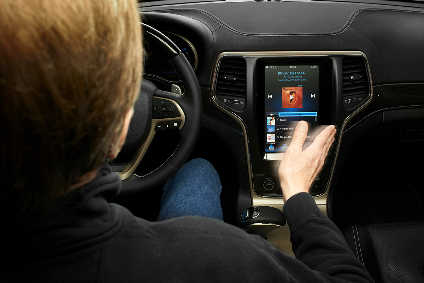
Delphi's Chief Technology Officer, Jeff Owens, has told just-auto that the automotive battle for the Millennials is being played out in the user experience in the car cockpit.
Speaking exclusively to just-auto in London ahead of a Delphi Investor Day later this week, Owens said that a big part of Delphi's mission is to bring the digital lifestyle of the Millennials generation into the car and do it safely.

Discover B2B Marketing That Performs
Combine business intelligence and editorial excellence to reach engaged professionals across 36 leading media platforms.
Owens maintains that while the Millennials are buying cars, they are buying them later and are seeking a different user experience to that of previous generations. "They want a superior user experience in the cockpit and they'll pay for connectivity and they will pay for safety," he says. "They care a little bit less about horsepower and maybe about styling than earlier generations. The battleground for the Millennials is that user experience in the cockpit."
He says that Delphi is focused on meeting the changing requirements for the user experience, including supplying the gesture control capability in the current BMW 7 Series.
"We have focused for some time on the active safety portfolio, which they are very interested in and on the connectivity portfolio, the user experience in the cockpit. It's the entertainment, the infotainment, the graphical representation, the reconfigurable displays, the whole human machine interface (HMI). There is natural language recognition, or it may be gesture control (we're in production with the BMW 7 Series on gesture control). A touchless kind of interface can be less distracting – less requirement to take your eyes off the road or hands off the wheel.
"They want to use their digital lifestyle, but they also want to use it safely. They will pay to use it and they will pay to use it safely."
Owens also emphasised the importance of the electrical architecture in vehicles to meet expanded needs. "For us, the electrical architecture that hooks all this up is important – the nervous system of the vehicle, the wiring and connectors, the high speed data – that is going to be required for real time, mission critical decisions for safety or engine management systems, or streaming enormous quantities of data into the cockpit."
He also told just-auto that Delphi remains focused on three main automotive themes: safe, green and connected. "Those three themes are tending to drive the automotive industry in very similar ways around the world."
ICE dominance to remain; hybrids to grow, boosted by 48V
Owens also believes that the automotive powertrain area will continue to see innovations aimed at helping vehicle manufacturers meet tighter CO2 and fuel economy standards. "The ICE keeps getting better and better. We think by 2025, 95% of the vehicles produced in the world will still have an Internal Combustion Engine. Maybe a couple of percent will be pure electric vehicle."
However, he also sees a bright future for gasoline-electric hybrids, led by a new breed of 48V mild hybrids. "By 2025, 15-18% of vehicles will have a hybrid overlay, it might be mild or it might be full. One of the things we are really excited about is the 48V mild hybrid."
He sees 48V as an affordable option for car companies to reduce emissions and raise fuel economy. "We think 48V offers 50-70% of the value of a full hybrid, but at around 30% of the cost. It's a smaller battery, you're under 60V, not high voltage, the power electronics can be smaller and so on. There is less benefit than with a bigger system, but it's a proportionately bigger benefit with 48V. The on-cost is maybe just $1,000-$1,200 but you are getting 70% of the benefit of a full hybrid that comes with a bigger battery, the more expensive power electronics and is about $3,000."
See also: Detroit interview with Delphi's Jeff Owens (January 2016)






